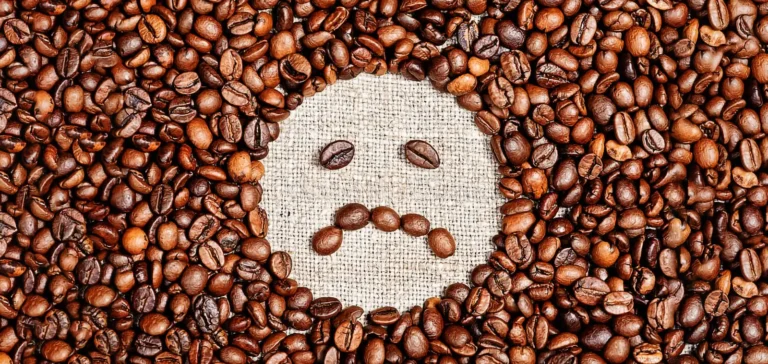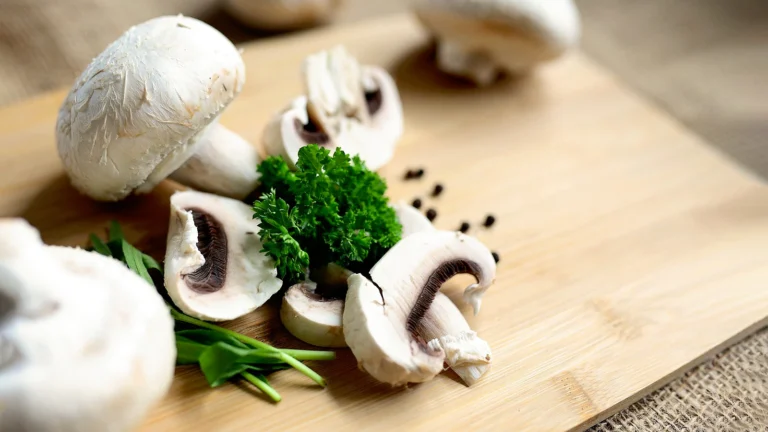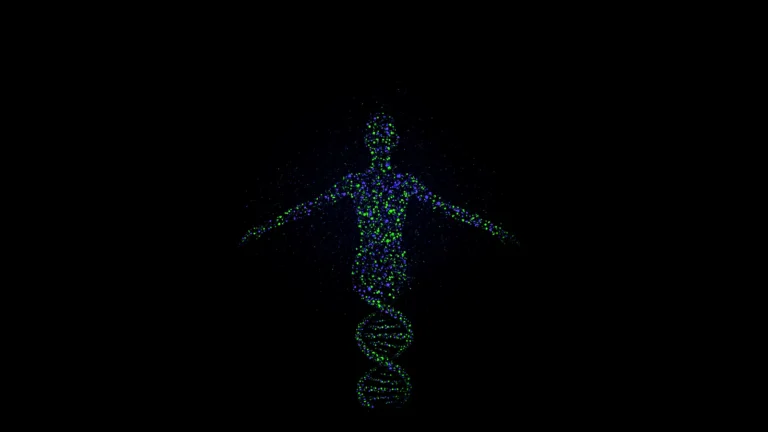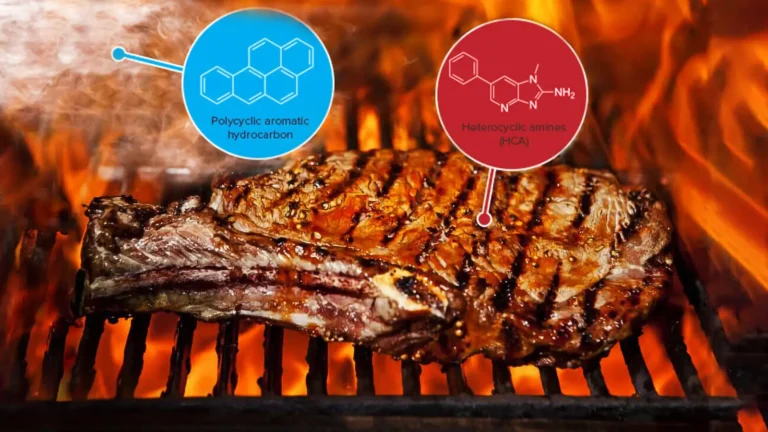Régime Méditerranéen- "Merveille" de l'huile d'Olive
Commercialisé comme une merveille d'huile d'olive, le régime méditerranéen n'a rien à voir avec une huile quelconque, sauf dans la mesure où elle peut remplacer le beurre et le saindoux.
Milos Pokimica
Écrit par : Milos Pokimica
Examiné Médicalement Par : Dr. Xiùying Wáng, M.D.
Mis à jour le 9 juin 2023Le bon vieux régime méditerranéen sain. Commercialisé comme une merveille d'huile d'olive qui n'avait rien à voir avec l'huile de quelque sorte que ce soit, sauf dans la mesure où elle peut remplacer des choix encore pires comme une graisse saturée ordinaire comme le beurre et le saindoux. C'est précisément ainsi que le père du régime méditerranéen l'a vu (Clés, 1987). Lorsque l'on consulte le site pubmed.gov et que l'on recherche un régime méditerranéen, on obtient environ 5 000 résultats. Le régime méditerranéen correspond à de nombreux régimes alimentaires dans de nombreux pays différents. Il peut s'agir du Maroc, de la Grèce, de l'Espagne, de l'Italie ou d'un autre pays.
Cependant, lorsque nous parlons de régime méditerranéen, ce qui est sous-entendu, c'est le régime alimentaire de l'île de Crète à l'époque de l'après-guerre. De plus, ce qui vient ensuite est une grande question: pourquoi les maladies cardiaques étaient-elles rares en Méditerranée ? Signification sur l'île de Crète après la Seconde Guerre mondiale.
En 1948, après la guerre et l'effondrement socio-économique, le gouvernement grec s'est inquiété de la malnutrition et de l'état de santé de ses citoyens. Il décide d'inviter la Fondation Rockefeller à entreprendre une étude épidémiologique sur l'île de Crète. En 1952, impressionné par les faibles taux de maladies cardiaques, Ancel Keys, le même scientifique qui était en charge de l'expérience de famine du Minnesota, a établi un lien entre les graisses, et en particulier les graisses saturées, et les maladies cardiaques, après avoir étudié les données. À l'époque, il ne voyait pas le cholestérol comme le problème, car cela signifierait que les produits d'origine animale sont les coupables. Le lien entre les graisses alimentaires et les maladies cardiaques avait déjà été observé dans les années 1930 et avait influencé les travaux de Keys, mais les données recueillies en Crète l'ont amené à rédiger un article à ce sujet en 1953 et à le rendre public. La célèbre étude des sept pays devait commencer cinq ans plus tard, en 1958, pour répondre aux préoccupations de Keys (www.sevencountriesstudy.com). Dans les années 1960, il était communément admis que les graisses saturées contribuaient aux maladies cardiaques. Le régime alimentaire des habitants de l'île de Crète a été un catalyseur pour cette recherche plus tard. En 1970, l'étude des sept pays a été présentée pour la première fois. Maintenant, Keys a vécu jusqu'à 100 ans et n'était pas à l'époque aussi radical que les confusions de cholestérol voudraient vous le faire croire. Il a recommandé de manger moins de gras, c'est-à-dire de gras dans la viande et de gras en général comme les œufs (ou au moins les jaunes) et les produits laitiers, et au lieu de manger plus de poisson et de poulet. Il considérait les fruits et légumes comme des aliments complémentaires, et il avait un taux de cholestérol d'environ 200. Ce nombre n'est pas sain de loin, mais il a vécu jusqu'à 100. Le problème était qu'il était médecin du même système que n'importe quel autre. autre médecin.
L'artériosclérose est une maladie, pas un processus de vieillissement. Nous pouvons examiner les artères et mesurer la tension artérielle de personnes pauvres dans des endroits comme la Crète. Keys n'a pas vu la vérité sur ce qu'était le vrai régime alimentaire en Crète. Il pensait qu'il ne s'agissait que de graisses et ne voyait pas le problème des protéines animales. Les animaux corrélation protéique a été négligé même dans les charts. Il a brouillé l'eau en pointant juste la graisse.
Cependant, même cela n'était pas suffisant. C'était même exagéré. En 1966, George Campbell et Thomas L. Cleave ont publié "Diabetes, Coronary Thrombosis, and Saccharine Disease". Ils ont fait valoir que les maladies occidentales chroniques telles que les maladies cardiaques, les ulcères gastro-duodénaux, le diabète et l'obésité sont produites par une seule chose: "la maladie des glucides raffinés". C'était une histoire sans fin. Il n'a jamais cessé à ce jour. Tout est un mensonge qui est confronté au mensonge contraire. Guerres et confusion alimentaires créées artificiellement. C'était une bonne stratégie de conception qui n'a rien changé en 70 ans, à l'exception du fait de priver les gens ordinaires d'argent causant des maladies, créant ainsi une boucle maléfique de misère. Même à l'époque actuelle, c'est la même vieille histoire de manipulation. En 2001, par exemple, dans l'article de Science Magazine intitulé "Nutrition: The Soft Science of Dietary Fat", Gary Taubes écrivait:
"La question de savoir si la consommation de graisses saturées au-delà des niveaux recommandés par toute personne qui n'est pas déjà exposée à un risque élevé de maladie cardiaque augmentera la probabilité d'une mort prématurée reste discutable... ou si des centaines de millions de dollars consacrés à des essais ont réussi à produire des preuves convaincantes que des personnes en bonne santé peuvent prolonger leur vie de plus de quelques semaines, le cas échéant, en mangeant moins de graisses."
70 ans plus tard, les gens pensent que le régime méditerranéen est sain grâce à l'huile d'olive. C'est une excellente illustration d'une demi-vérité. Les restaurants italiens se présentent comme des restaurants méditerranéens sains avec des spaghettis carbonara et de l'alcool. À l'époque, le taux de mortalité par maladie cardiaque en Crète était plus de 20 fois, et non 20 %, 20 fois moins élevé qu'aux États-Unis. Les données statistiques recueillies dans des régions comme la Chine rurale, la Crète, Okinawa et bien d'autres montrent que le régime alimentaire de ces populations est simple et similaire à celui des autres. Quel degré de stupidité devons-nous avoir pour ne pas voir la véritable histoire de ce qui se passe ? Les scientifiques ayant un niveau d'éducation considérable ne sont pas les plus stupides. Ils ont des revenus annuels à six chiffres plus des primes. Ils sont intelligents. Nous ne le sommes pas. La science nutritionnelle n'est pas une recherche secrète menée dans les laboratoires souterrains du système de propulsion militaire. Il n'y a pas de véritables débats dans le domaine de la nutrition, mais seulement une volonté de créer une véritable confusion.
Que mangeaient-ils sur l'île de Crète au lendemain de la Seconde Guerre mondiale ? La réponse est la même. Ni viande, ni œufs, ni produits laitiers. Juste des aliments pour pauvres, comme des fruits et des légumes, des céréales, des noix et des légumineuses. Des choses qui poussent localement. En chiffres, ils ont mangé plus de 90% à base de plantes, et la viande, le poisson, les produits laitiers et les produits à base d'œufs combinés représentent environ 7%. Ils mangeaient un peu d'huile d'olive parce que les olives poussent en Crète, mais il ne s'agit pas d'un régime à base d'huile d'olive. Ce n'est pas non plus un régime à base d'huile d'olive ou de vin. Le vin n'a rien de sain, à l'exception du raisin. Il vaudrait mieux se contenter de boire du jus de raisin brut. Si nous regardons la Grèce aujourd'hui, que pensons-nous y trouver ? Elle est la première en Europe pour l'obésité infantile. L'île de Crète en fait partie. Dès que l'économie s'améliore, la viande, le fromage, le sucre et l'alcool arrivent en masse. Et le tabagisme aussi. La Grèce affiche un taux de consommation de tabac supérieur à 40%. Le régime méditerranéen n'était pas un régime méditerranéen local comme la cuisine italienne ou la cuisine grecque. Il s'agissait d'un régime de pauvreté sans viande, sans œufs et sans produits laitiers, semblable aux régimes de tous les pays pauvres ou en guerre, ce que l'industrie n'aime pas mentionner. Les maladies cardiaques étaient rares en Grèce. C'était le cas. Elles ne le sont plus. Et même en Crète, en temps de guerre, certains riches mangeaient "normalement", c'est-à-dire qu'ils mangeaient de la viande tous les jours au lieu d'une fois toutes les deux semaines. Pour eux aussi, les crises cardiaques étaient normales, contrairement au reste des gens du peuple frappés par la pauvreté. Aujourd'hui, plus personne ne suit le vrai régime méditerranéen. Le régime méditerranéen pur d'aujourd'hui, qui est principalement basé sur les plantes, n'est pas un véritable régime alimentaire complet. Il est dominé par la farine blanche, la consommation d'huile et de sel, et l'alcool. En Crète, on ne mangeait pas de pâtes blanches raffinées sortant de l'usine, accompagnées d'une sauce pleine d'huile extraite et de bouteilles de vin. L'alcool est un facteur de risque connu du cancer du sein, même si l'on ne tient pas compte de l'inflammation et de la toxicité. Ce n'est pas un repas bénéfique pour la santé. Enfin, ce n'est pas un repas bénéfique pour la santé si nous ne le comparons pas au repas américain standard d'aujourd'hui, qui est encore pire. Donc, oui, le régime méditerranéen est plus sain que le régime ordinaire, mais pas aussi sain qu'un véritable régime humain naturel, c'est-à-dire un régime à base d'aliments entiers et de plantes. Régime à base d'aliments entiers d'origine végétale.
Le problème est que la nourriture normale ordinaire n'est pas savoureuse car raffinée, pleine de sel et d'huile et sucre et presque personne ne s'y tient. Dès leur plus jeune âge, les enfants reçoivent tous ces produits chimiques que nous considérons comme de la nourriture, de sorte que nous y sommes accoutumés dès l'enfance et que nous n'avons plus de véritable base de comparaison avec ce qu'est la vraie nourriture humaine. C'est pourquoi le régime des pauvres fonctionne. Si l'on fait abstraction du cholestérol, des toxines et des graisses saturées provenant des produits animaux et si l'on analyse les différents éléments du régime alimentaire en Crète, on constate qu'en réalité, ce ne sont pas les céréales qui protègent contre les crises cardiaques. Les céréales étaient plus neutres et, parce qu'il s'agissait d'aliments complets contenant des fibres, elles n'avaient pas d'effet sur l'obésité ou le diabète. Parmi les composants individuels du régime méditerranéen, la consommation de légumes verts et de fruits à coque est celle qui a le plus d'effets sur la réduction du risque de maladie cardiovasculaire. Les végétariens qui mangent des noix ont un risque plus faible de maladie cardiovasculaire que ceux qui n'en mangent pas, et il y a maintenant un certain nombre d'études sur ce sujet également. En voici une (Guasch-Ferré et al., 2013) avec la conclusion: "Une fréquence accrue de consommation de noix était associée à un risque de mortalité significativement réduit dans une population méditerranéenne à haut risque cardiovasculaire."
Les fruits à coque ont une teneur élevée en huile mais aussi en fibres, de sorte que l'huile n'est pas immédiatement absorbée comme la graisse de la viande ou de l'huile raffinée et, contrairement à la viande ou à l'huile, les fruits à coque sont riches en antioxydants et autres substances phytochimiques. Un autre avantage des fruits à coque est qu'en les combinant avec des légumes verts, l'huile augmente l'absorption des substances chimiques liposolubles présentes dans les légumes déjà sains. Il n'est pas nécessaire d'adopter une alimentation pauvre en matières grasses, d'éviter la consommation de fruits à coque et de graines et de privilégier les féculents. Nous devrions manger des féculents, des noix et tous les autres aliments dans la plus grande variété possible. Jusqu'à présent, la science n'a pas établi de corrélation entre une consommation élevée de graines et de noix et une quelconque maladie, y compris l'obésité, sauf chez les personnes souffrant d'allergies. C'est tout le contraire. Elles sont bénéfiques dans presque tous les cas. Les noix du Brésil sont pleines de sélénium, les noix protègent contre le cancer, les lignanes des graines de lin sont l'un des produits chimiques les plus protecteurs contre le cancer du sein et sont également pleines d'huiles oméga-3 pour les fonctions cérébrales. Nos ancêtres mangeaient des noix et des graines crues depuis longtemps. Ce sont nos aliments naturels au même titre que les fruits, les céréales, les jeunes feuilles ou d'autres légumes à feuilles vertes.
Le régime alimentaire sain est celui que nous avions évolué et adapté à l'alimentation. C'est ça.
Références :
- Clés A. (1987). L'huile d'olive et les maladies coronariennes. Lancet (Londres, Angleterre), 1(8539), 983–984. https://doi.org/10.1016/s0140-6736(87)90337-0
- Guasch-Ferré, M., Bulló, M., Martínez-González, M. Á., Ros, E., Corella, D., Estruch, R., Fitó, M., Arós, F., Wärnberg, J. , Fiol, M., Lapetra, J., Vinyoles, E., Lamuela-Raventós, RM, Serra-Majem, L., Pintó, X., Ruiz-Gutiérrez, V., Basora, J., Salas-Salvadó, J., & groupe d'étude PREDIMED (2013). Fréquence de consommation de noix et risque de mortalité dans l'essai d'intervention nutritionnelle PREDIMED. Médecine BMC, 11, 164. https://doi.org/10.1186/1741-7015-11-164
Articles Similaires
Vous avez des questions sur la nutrition et la santé ?
J'aimerais avoir de vos nouvelles et y répondre dans mon prochain post. J'apprécie votre contribution et votre opinion et j'ai hâte d'avoir de vos nouvelles bientôt. Je vous invite également à nous suivre sur Facebook, Instagram et Pinterest pour plus de contenu sur l'alimentation, la nutrition et la santé. Vous pouvez y laisser un commentaire et entrer en contact avec d'autres passionnés de santé, partager vos conseils et expériences, et obtenir le soutien et les encouragements de notre équipe et de notre communauté.
J'espère que ce billet a été instructif et agréable pour vous et que vous êtes prêt à mettre en pratique les connaissances que vous avez acquises. Si vous avez trouvé ce billet utile, veuillez le partager à vos amis et à votre famille qui pourraient également en bénéficier. On ne sait jamais qui peut avoir besoin de conseils et de soutien dans son parcours de santé.
– Vous pourriez aussi aimer –

Apprendre la Nutrition
Milos Pokimica est docteur en médecine naturelle, nutritionniste clinique, rédacteur en santé médicale et nutrition et conseiller en sciences nutritionnelles. Auteur de la série de livres Devenir vegetarien ? Examen des sciences, il exploite également le site Web de santé naturelle GoVeganWay.com
Avis de non-responsabilité médicale
GoVeganWay.com vous propose des critiques des dernières recherches liées à la nutrition et à la santé. Les informations fournies représentent l'opinion personnelle de l'auteur et ne sont pas destinées ni implicitement à remplacer un avis médical professionnel, un diagnostic ou un traitement. Les informations fournies sont fournies à titre informatif uniquement et ne sont pas destinées à remplacer la consultation, le diagnostic et/ou le traitement médical d'un médecin ou d'un prestataire de soins de santé qualifié.NE JAMAIS IGNORER LES CONSEILS MÉDICAUX PROFESSIONNELS OU RETARDER LA RECHERCHE DE SOINS MÉDICAUX EN RAISON DE QUELQUE CHOSE QUE VOUS AVEZ LU OU ACCÉDÉ SUR GoVeganWay.com
N'APPLIQUEZ JAMAIS DE CHANGEMENTS AU STYLE DE VIE OU TOUT CHANGEMENT À LA SUITE DE QUELQUE CHOSE QUE VOUS AVEZ LU SUR GoVeganWay.com AVANT DE CONSULTER UN PRATICIEN MÉDICAL AGRÉÉ.
En cas d'urgence médicale, appelez immédiatement un médecin ou le 911. GoVeganWay.com ne recommande ni n'approuve aucun groupe, organisation, test, médecin, produit, procédure, opinion ou autre information spécifique pouvant être mentionné à l'intérieur.
Choix de l'éditeur -
Milos Pokimica est docteur en médecine naturelle, nutritionniste clinique, rédacteur en santé médicale et nutrition et conseiller en sciences nutritionnelles. Auteur de la série de livres Devenir vegetarien ? Examen des sciences, il exploite également le site Web de santé naturelle GoVeganWay.com
Derniers articles –
Nouvelles Basées Sur Les Plantes
-
Where Do Vegans Get Their Protein? The Ultimate 2025 Response
on juin 29, 2025
-
Saffron Green Bean Rice
on juin 29, 2025
-
Tomato Choka Salad With Chickpea Tofu
on juin 29, 2025
-
How To Make This ‘Always A Winner’ Vegan Sandwich
on juin 29, 2025
-
5-Ingredient Coconut And Squash Traybake
on juin 29, 2025
-
Lidl Launches Round BN-Style Vegan Biscuits
on juin 28, 2025
-
Vegan Mushroom Calzone
on juin 28, 2025
Top Des Nouvelles Sur la Santé - ScienceDaily
- A tiny implant just helped paralyzed rats walk again—is human recovery next?on juin 28, 2025
A groundbreaking study from the University of Auckland and Chalmers University of Technology is offering new hope for spinal cord injury patients. Researchers have developed an ultra-thin implant that delivers gentle electric currents directly to the injured spinal cord. This device mimics natural developmental signals to stimulate nerve healing, and in animal trials, it restored movement and touch sensation in rats—without causing inflammation or damage.
- Scientists turn beer yeast into mini factories for smart drugson juin 28, 2025
A team of researchers has turned ordinary yeast into tiny, glowing drug factories, creating and testing billions of peptide-based compounds in record time. This green-tech breakthrough could fast-track safer, more precise medicines and reshape the future of pharma.
- Candy colors, THC inside: How cannabis edibles are tricking teen brainson juin 28, 2025
Teens are being misled by cannabis edibles dressed up like health foods. Bright colors, fruit imagery, and words like vegan make these products look fun, natural, and safe even when they re not. A WSU study warns that this could increase the risk of underage use and urges new packaging rules based on what actually appeals to teens.
- Why asthma often comes back—even with powerful drugson juin 27, 2025
Biological drugs have been a game-changer for people with severe asthma, helping them breathe easier and live more comfortably. But researchers at Karolinska Institutet have uncovered a surprising twist: while these treatments ease symptoms, they may not fully eliminate the immune cells that drive inflammation. In fact, some of these cells actually increase during treatment, suggesting the medication is managing symptoms without targeting the root cause. This could explain why asthma often […]
- Parkinson’s may begin decades earlier — and your immune system might know firston juin 27, 2025
Misbehaving T cells light up long before Parkinson’s symptoms show, zeroing in on vulnerable brain proteins. Their early surge could double as an alarm bell and a target for stop-it-early treatments.
- AI sees what doctors miss: Fatty liver disease hidden in chest x-rayson juin 27, 2025
Researchers in Japan created an AI that can detect fatty liver disease from ordinary chest X-rays—an unexpected and low-cost method that could transform early diagnosis. The model proved highly accurate and may offer a fast, affordable way to flag this silent but serious condition.
- Acid-busting diet triggers 13-pound weight loss in just 16 weekson juin 26, 2025
Swap steaks for spinach and you might watch the scale plummet. In a 16-week crossover study, overweight adults who ditched animal products for a low-fat vegan menu saw their bodies become less acidic and dropped an average of 13 pounds—while the Mediterranean diet left weight unchanged. Researchers link the shift to lower “dietary acid load,” a hidden inflammation trigger driven by meat, eggs, and cheese.
PubMed, #régime-vegan –
- Micronutrient intake and nutritional status in 16-to-24-year-olds adhering to vegan, lacto-ovo-vegetarian, pescatarian or omnivorous diets in Swedenon juin 26, 2025
CONCLUSION: Youth, regardless of dietary practice, need support to ensure adequate micronutrient intakes, particularly for vitamin D and selenium. Further research is required to evaluate iodine nutrition in Swedish youth.
- Dietary Patterns and Sustainable Lifestyles: A Multicenter Study from Latin America and Spainon juin 26, 2025
Food systems interact through multiple dimensions including food security, nutrition, and planetary health. This study aims to associate different dietary patterns with sustainable lifestyles in Latin America and Spain. This was an observational, analytical, multicenter, cross-sectional survey study, with a total of 6412 participants. A self-administered questionnaire was developed in an online format in the Google Docs interface. The questionnaire was divided into sections: (1) […]
- Integrating comparative genomics and risk classification by assessing virulence, antimicrobial resistance, and plasmid spread in microbial communities with gSpreadCompon juin 26, 2025
CONCLUSIONS: The gSpreadComp workflow aims to facilitate hypothesis generation for targeted experimental validations by the identification of concerning resistant hotspots in complex microbial datasets. Our study raises attention to a more thorough study of the critical role of diet in microbial community dynamics and the spread of AMR. This research underscores the importance of integrating genomic data into public health strategies to combat AMR. The gSpreadComp workflow is available at…
- Validation and adaptation of a Turkish version of the dietarian identity questionnaireon juin 25, 2025
Dietarian identity reflects an individual’s cognitive, emotional, and behavioral orientation toward the consumption or avoidance of animal-based foods, including red meat, poultry, fish, eggs, and dairy. This study aimed to adapt and validate the Dietarian Identity Questionnaire (DIQ) for Turkish-speaking populations by establishing its cultural and linguistic suitability and examining dietarian identity profiles among different dietary patterns. The DIQ was adapted into Turkish and […]
- Planting Rights and Feeding Freedom: Navigating the Right to a Vegan Diet in Hospitals and Prisonson juin 20, 2025
The legal recognition of veganism highlights the evolving landscape of dietary choices and their status under human rights law. This paper examines the legal status of vegan diets under the European Convention on Human Rights (ECHR), focusing on public institutions such as prisons and hospitals. By analyzing the first relevant cases before the European Court of Human Rights, it explores the protection of vegan diets under Articles 9 (freedom of thought, conscience, and religion) and 14…
Messages aléatoires –
Postes en vedette -

Dernières Nouvelles de PubMed, #alimentation végétale –
- Adherence to Mediterranean Diet and Implications for Cardiovascular Risk Preventionby Giulia Frank on juin 27, 2025
Background/Objectives:Arterial hypertension, increased carotid intima-media thickness (cIMT), and arterial stiffness (AS) are recognized predictors of cardiovascular disease (CVD). Emerging evidence suggests that vascular remodeling may precede the full development of hypertension. Furthermore, body mass index (BMI), fat mass percentage (FM%), and visceral adipose tissue (VAT), are significant risk factors for cardiovascular events. Conversely, adherence to the Mediterranean diet is […]
- Fermented Fruits, Vegetables, and Legumes in Metabolic Syndrome: From Traditional Use to Functional Foods and Medical Applicationsby Karolina Bernacka on juin 27, 2025
Fermentation has been used for centuries to preserve food and to obtain products with new, attractive sensory characteristics. Fermented products are a source of dietary fiber, vitamins, bioactive compounds, and probiotic bacteria with health-promoting properties. This review provides a comprehensive overview of the effects of fermented fruits, vegetables, and legumes on metabolic disturbances characterizing metabolic syndrome (MetS). Furthermore, the chemical composition, microbial […]
- Dos and Don’ts in Kidney Nutrition: Practical Considerations of a Panel of Experts on Protein Restriction and Plant-Based Diets for Patients Living with Chronic Kidney Diseaseby Massimo Torreggiani on juin 27, 2025
Dietary management is a pillar of chronic kidney disease (CKD) treatment. While some rules are the same as dietary prescriptions for the general population and those suffering from other chronic diseases (energy intake, salt intake, avoidance of ultra-processed food and limited intake of animal fats), in non-dialysis-dependent patients living with CKD, the specific focus is on protein intake. Low-protein diets (LPDs) and supplemented very low protein diets (sVLPDs) have been successfully…
- Effects of Pork Protein Ingestion Prior to and Following Performing the Army Combat Fitness Test on Markers of Catabolism, Inflammation, and Recoveryby Drew E Gonzalez on juin 27, 2025
Tactical athletes and military personnel engaged in intense exercise need to consume enough quality protein in their diet to maintain protein balance and promote recovery. Plant-based protein sources contain fewer essential amino acids (EAAs), while pork loin contains a higher concentration of EAAs and creatine than most other animal protein sources. This study aimed to determine whether the ingestion of plant-based or pork-based military-style meals ready-to-eat (MREs) affects recovery from […]
- Mediterranean Diet, Obesity-Related Metabolic Cardiovascular Disorders, and Environmental Sustainability: A Systematic Reviewby Sergio Rodríguez Núñez on juin 27, 2025
INTRODUCTION: This article aims to provide an updated overview of the scientific knowledge regarding the interplay between the Mediterranean diet (MedD), sustainability, and cardiovascular and metabolic health.
- Employing Nutrition to Delay Aging: A Plant-Based Telomere-Friendly Dietary Revolutionby Joanna Polom on juin 27, 2025
Telomere attrition is a hallmark of cellular aging, influenced by oxidative stress, chronic inflammation, and metabolic dysregulation. Emerging evidence suggests that dietary patterns rich in plant-based, minimally processed foods may influence telomere dynamics, potentially extending healthspan. This narrative review synthesizes current literature on the molecular mechanisms by which specific nutrients-such as antioxidants, polyphenols, omega-3 fatty acids, and methyl donors-affect telomere…



















